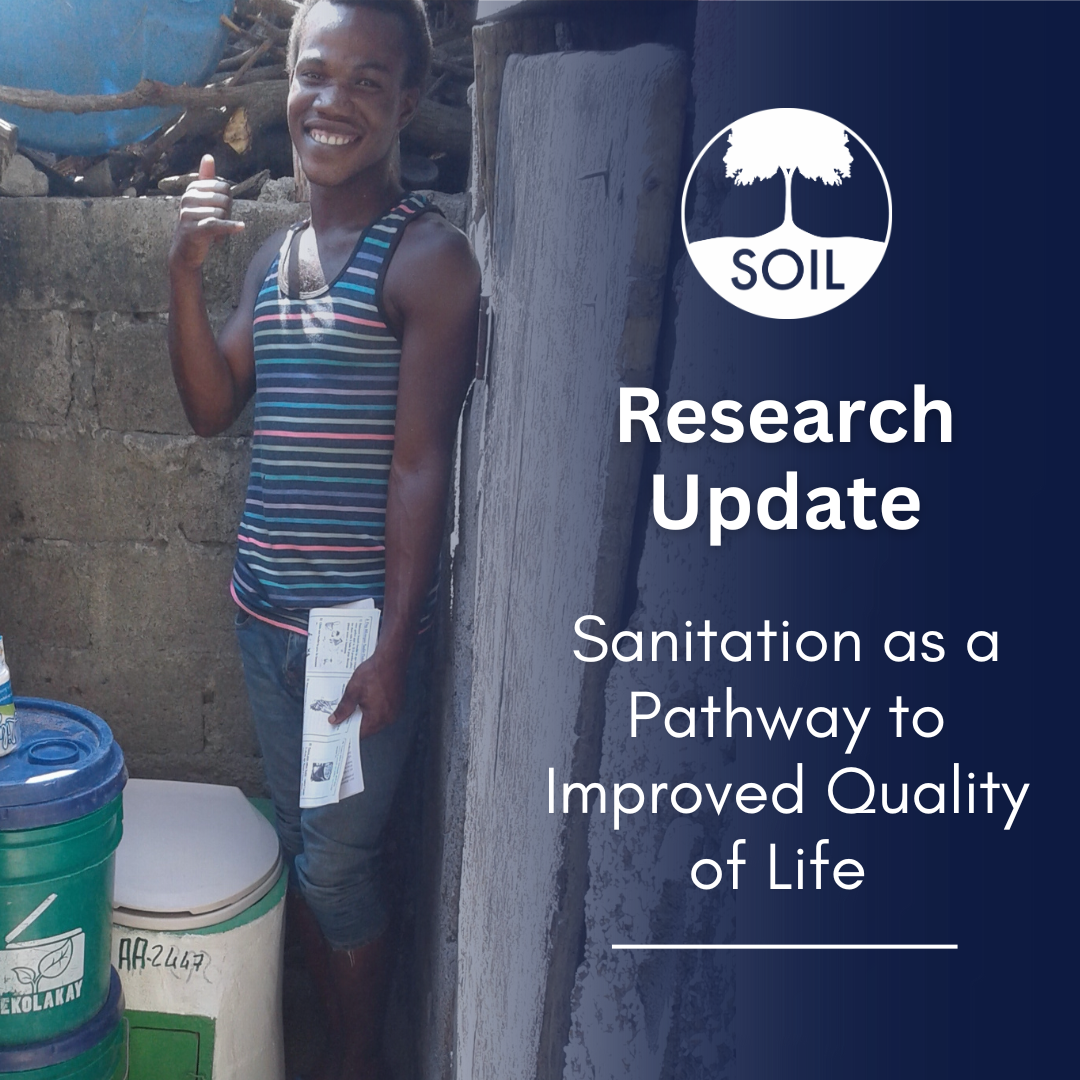Sanitation as a Pathway to Improved Quality of Life

EkoLakay client with household toilet.
How do we measure the true value and impact of sanitation on people's lives? For decades, the global health community has focused primarily on sanitation’s role in reducing infectious diseases and child health outcomes. While this remains essential, recent sectoral research has shown that the benefits can extend far beyond physical health. Access to a safe, dignified toilet transforms people’s everyday experiences — from how secure they feel in their homes to how they are perceived by their neighbors and their communities.
A recent peer-reviewed study conducted by Maya Lubeck-Schricker, Miselie Fanor Pierre and Bridj Ozeris was published in PLOS Water and closely examines these aspects of SOIL’s container-based sanitation service, EkoLakay, in Cap-Haïtien. Our Research Team followed households as they enrolled in the service to measure changes using the Sanitation Quality of Life (SanQoL) Index, a tool designed to capture the perceived personal and social dimensions of sanitation.

Key Research Findings
- Quality of life improved dramatically upon entering EkoLakay’s safe sanitation service. On average, households’ SanQoL scores increased by nearly 8 points on a 15-point scale. This represents a shift from relatively low quality of life at baseline to near-perfect SanQoL Index scores after receiving a household CBS toilet.
- The biggest gains were observed in the assessments of personal dignity and comfort. Feelings of shame and disgust — common when using unsafe or unhygienic latrines — decreased substantially. While improvements in privacy, health, and safety were also significant, the emotional and social dimensions saw the greatest change.
- Those with worse forms of sanitation access prior to EkoLakay benefited the most from the service. Families who previously relied on open defecation experienced the largest improvements, followed closely by households using crowded public latrines. Even families who already had some form of private toilet still experienced meaningful gains.
-
Container-based sanitation is well-suited for fragile urban environments - like those of Northern Haiti, where SOIL operates. In the dense, flood-prone neighborhoods of Cap-Haïtien, sewer systems are impractical. CBS services like EkoLakay provide a viable, scalable, and dignified alternative.

This research highlights something we at SOIL have long witnessed in our work: building a sanitation system is about far more than infrastructure or disease prevention. At its core, it is about dignity, safety, and equity. For policymakers, donors, and practitioners, the study is a reminder that sanitation must be measured not only by the health risks it reduces, but also by the opportunities for human flourishing it creates.
SOIL is committed to building on this evidence as we expand access to safe, affordable toilets across Cap-Haïtien and work to ensure that safe sanitation services are available to everyone. By centering quality of life in sanitation policy and practice, we can better design services and solutions that respond to people’s core needs and demands.